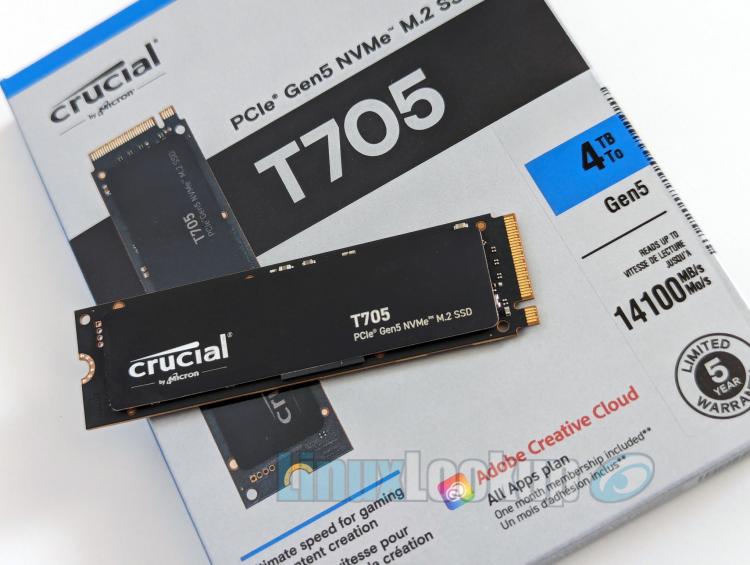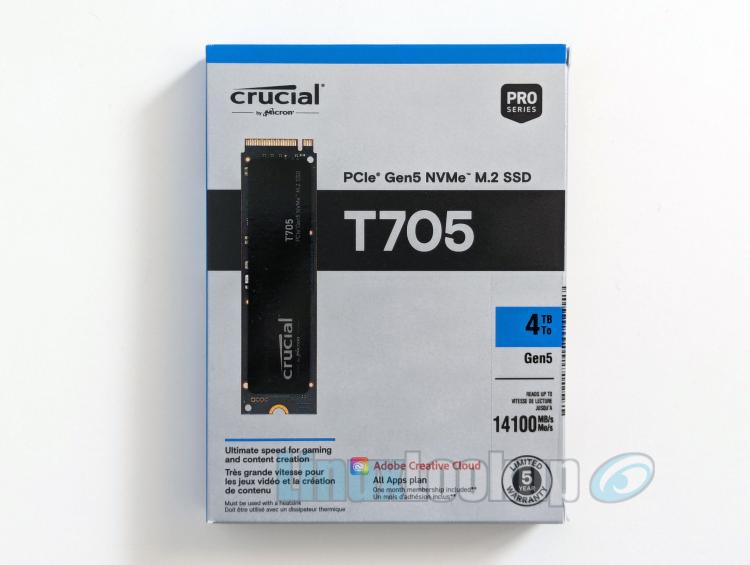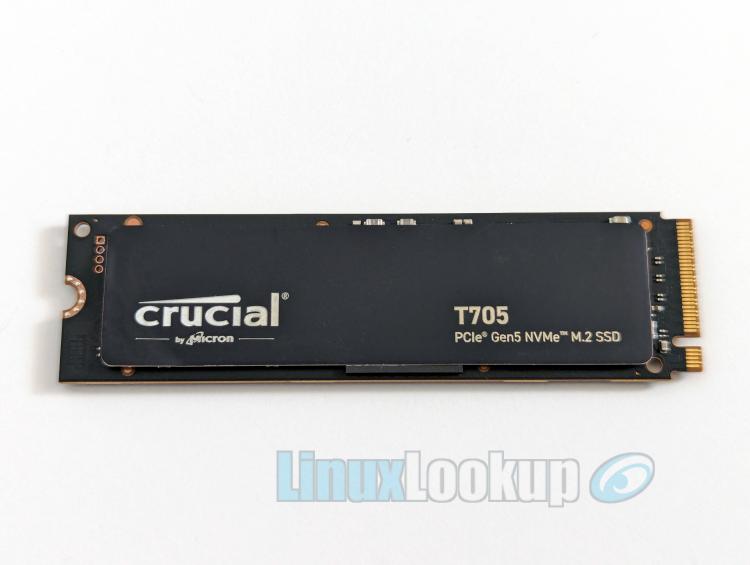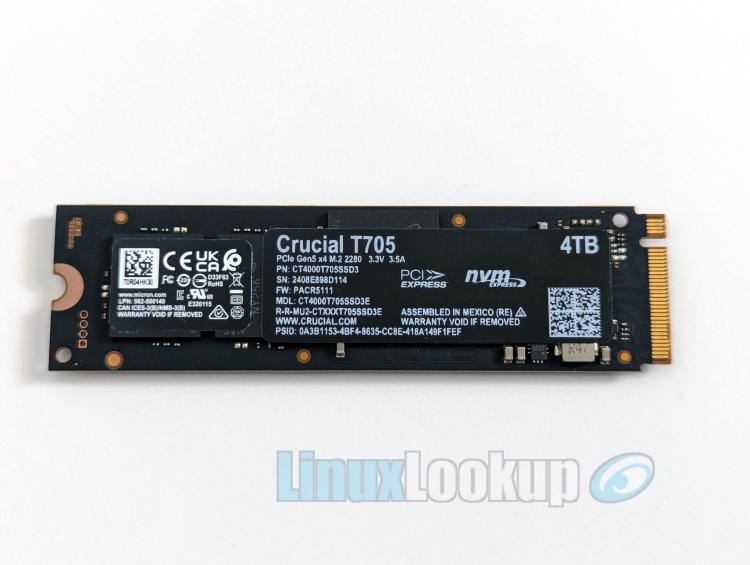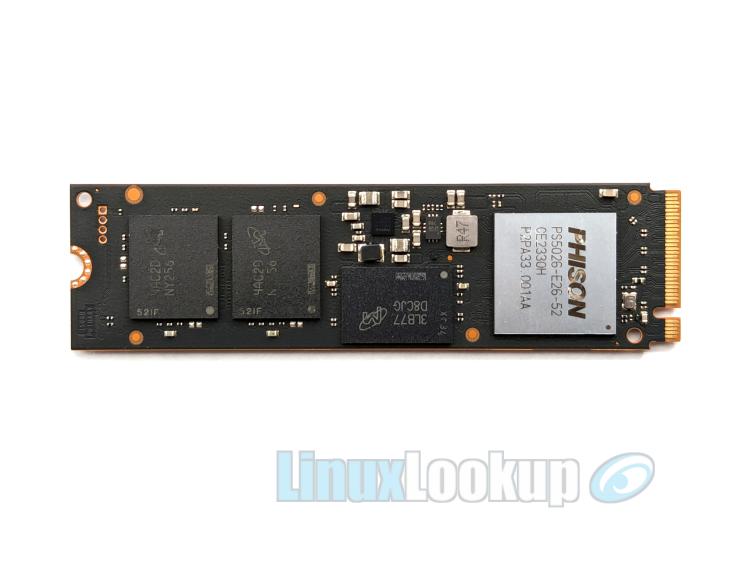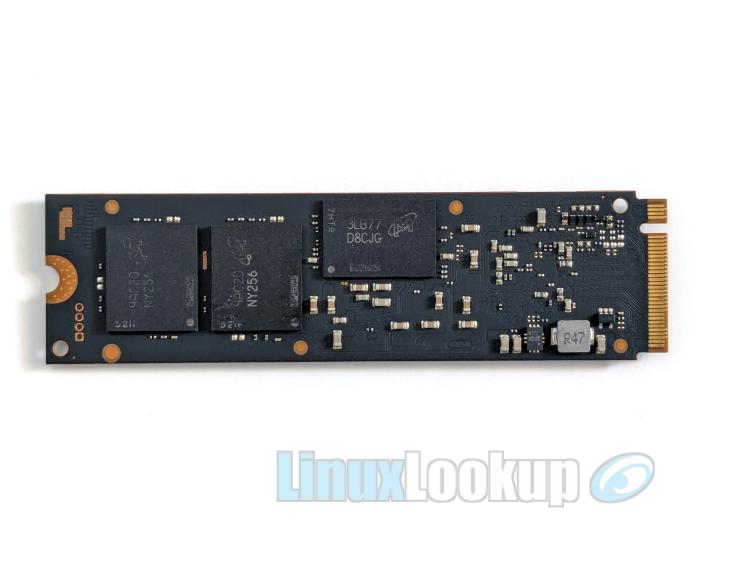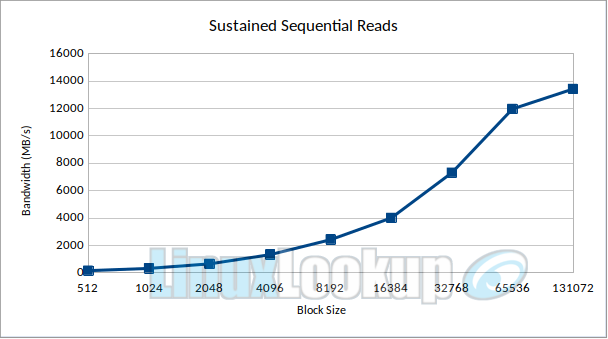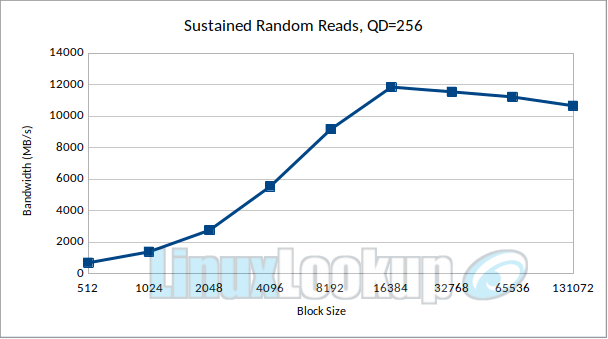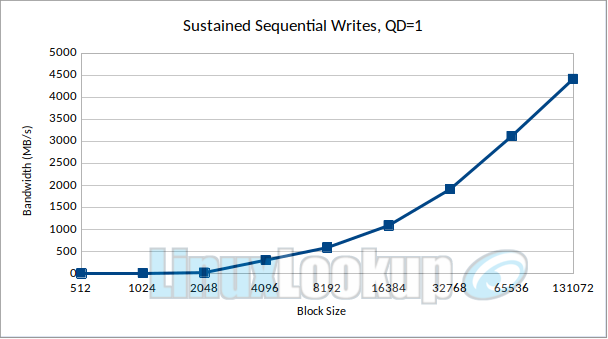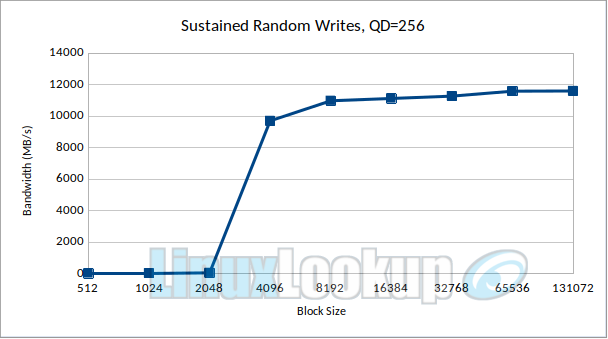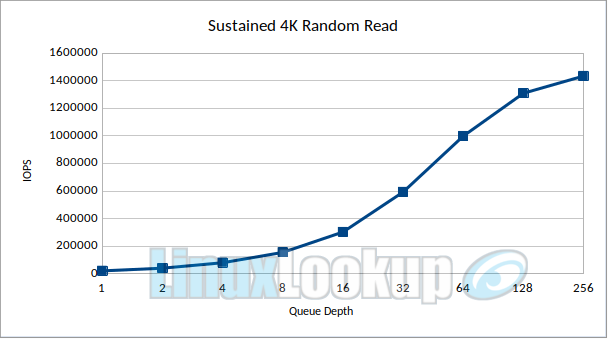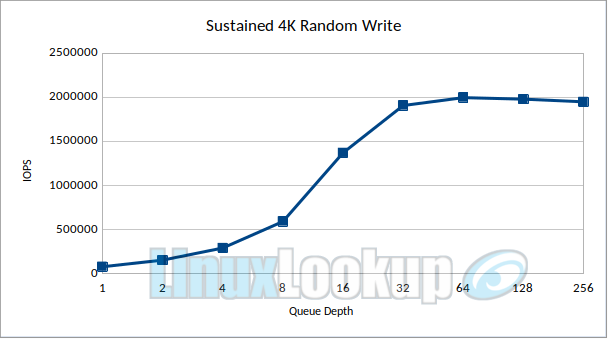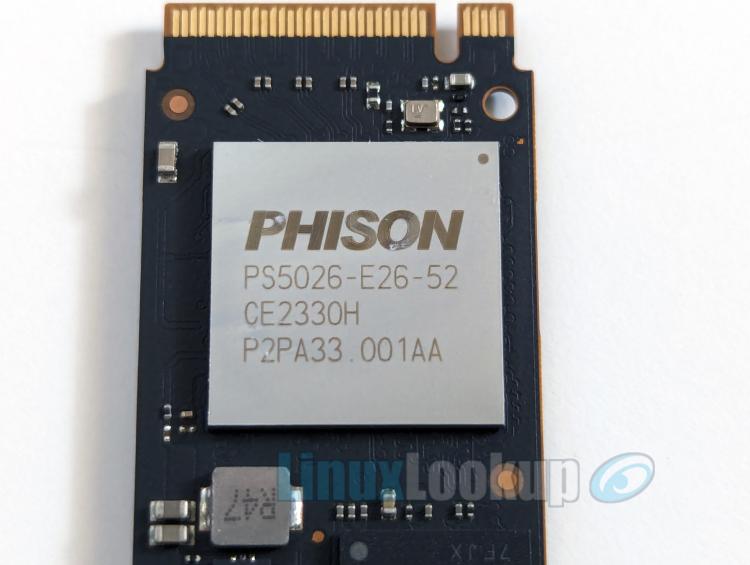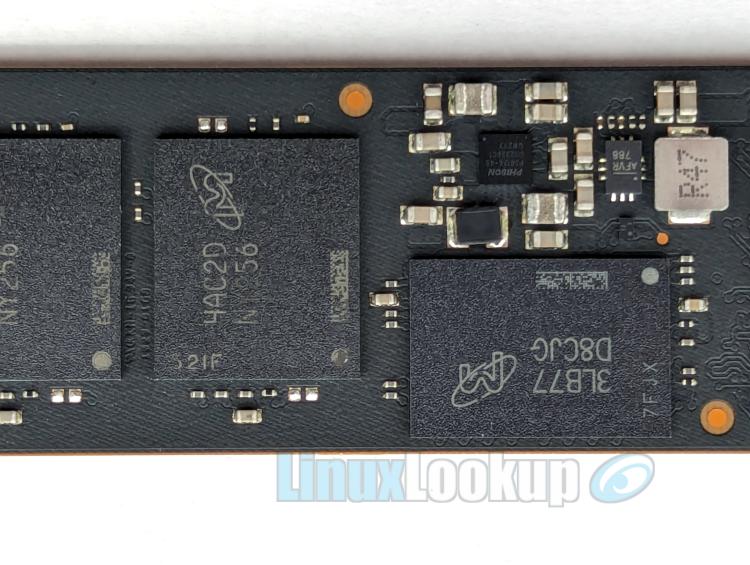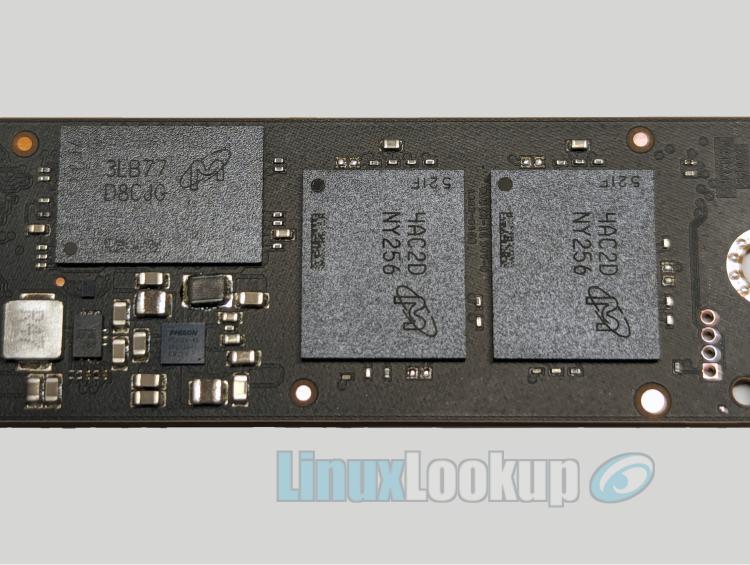Crucial T705 4TB SSD Review
Crucial's T705 NVMe SSD builds on the success of their previous T700 Series, delivering a notable boost in performance. It fully harnesses the capabilities of the PCIe 5.0 interface, offering users a substantial upgrade in speed and efficiency.
In this review, we'll highlight the predominate features of this high-performance solid-state drive (SSD) and provide Linux benchmarks.
The Crucial T705 SSD (non-heatsink) is available in three different capacities, 1TB, 2TB and a 4TB model — current online retail pricing is $165.99, $264.99, $514.99 respectively. Free shipping in the USA applies when purchased directly through Crucial's website.
To address the thermal challenges commonly associated with PCIe Gen5 NVMe M.2 SSDs, most motherboards come equipped with heatsinks over the storage slots. If your board or device lacks this feature, the T705 can be purchased with an included heatsink at a reasonable price.
Crucial also offers a limited edition white heatsink variant, however, this white heatsink is only available on the 1TB and 2TB models.
Performance ratings for the Crucial T705 Series differ slightly based on the drive model. Starting with the lowest capacity of 1TB, which is quoted to deliver a Sequential Read of 13,600MB/s with Random Read up to 1,400K IOPS, the 2TB model offers the best Sequential Read at 14,500MB/s with Random Read up to 1,550K IOPS. Meanwhile, the 4TB model offers slightly lower Sequential Read performance at 14,100MB/s with Random Read up to 1,500K IOPS.
Variations in write performance are also observed. The 1TB model is quoted to deliver a Sequential Write of 10,200MB/s with Random Write up to 1,750K IOPS. The 2TB model again leads with a Sequential Write of 12,700MB/s, whereas the 4TB model has a Sequential Write of 12,600MB/s. Both larger capacity models share identical Random Write speeds of up to 1,800K IOPS.
Regardless of the chosen model, expect incredibly fast speeds. Refer to the table below for comparison. Highlighted is the Crucial T705 4TB featured in this SSD review.
| Crucial T705 SSD | 1TB | 2TB | 4TB |
| Sequential Read (Max, MB/s) | 13,600 | 14,500 | 14,100 |
| Sequential Write (Max, MB/s) | 10,200 | 12,700 | 12,600 |
| Random Read (Max, IOPS) | 1,400K | 1,550K | 1,500K |
| Random Write (Max, IOPS) | 1,750K | 1,800K | 1,800K |
The preceding T700 Series is no slouch when it comes to performance and remains a viable purchasing option at a lower cost. However, on paper, this new T705 Series delivers 18% higher sequential reads, 8% higher sequential writes, 4% higher random reads, and 20% higher random writes in comparison.
The Crucial T705 4TB SSD is a double-sided design, with NAND flash memory chips on both sides of the printed circuit board (PCB). It utilizes the M.2 2280 form-factor and PCIe Gen 5.0 x4, NVMe 2.0 interfacing.
Peeling back the labels on both sides of the PCB provides more insight into the Crucial T705 4TB SSD design. Surprisingly, the drive isn't using a proprietary Micron SSD controller. Instead, Crucial has opted for the Phison E26 (PS5026-E26-52) to deliver high-end performance. The specifications of the Phison E26 controller are freely available online if you're interested in a technical deep dive.
On one side, we can see the Phison E26 controller, a Phison PS6126 PMIC, Micron D8CJG (MT53E1G32D2FW-046 WT:B) LPDDR4 DRAM for Dynamic SLC caching (1GB per 1TB of NAND flash), and two Micron NY256 (MT29F8T08EULCHD5-QB:C) 232-layer TLC NAND flash memory packs for storage. Flipping the SSD over, we find an additional Micron D8CJG and the other two Micron NY256 packages.
The T705 4TB model has a calculated life expectancy or Mean Time Between Failures (MTBF) of 1.5 million hours, and endurance rating of 2400TB Total Bytes Written (TBW). This equates to 0.329 Drive Writes Per Day (DWPD) or 1315.068 Gigabytes written per day (GB/day) for five years, all backed by Crucial's five-year limited warranty.
Features
Highlight summary:
- Redundant array of independent NAND (RAIN)
- Multi-layer data integrity algorithms
- Data protection for power loss events
- Active garbage collection
- TRIM support
- Self-monitoring and reporting technology (SMART)
- Error correction code (ECC)
- Built-in security with AES256 encryption, TCG OPAL 2.01 support
- Digitally signed firmware for secure field updates.
- Dynamic SLC caching (~11% of total user capacity)
- Adaptive thermal protection
- 5 year limited warranty
Specifications
- Type: M.2 2280 (double-sided)
- Height: 22mm x 80mm
- Flash Controller: Phison E26 (PS5026-E26-52)
- Flash Type: Micron 232-layer TLC NAND
- Interface: PCIe Gen5 x4 / NVMe 2.0
- Temperature: Thermal throttling starts at 81C
- Acoustics: 0dB
- Mean Time Between Failures (MTBF): 1.5M Hours
- Total Bytes Written (TBW): 2400TB
Performance
Our SSD benchmarking process does not evaluate drives in a Fresh-Out-of-Box (FOB) state. Most manufacturers specify I/O performance based on FOB benchmarks because the drive has not yet undergone any sustained workload. As a result, these performance measurements from a FOB state tend to be uncharacteristically high. Instead, to provide more accurate measurements, we precondition the drive to a steady state before running our Linux benchmarks. Steady state is achieved by issuing a series of random and sequential preconditioning operations. Although this process takes several hours, the benchmark results are more consistent and reflect real-world performance.
Advertised performance
- Model: CT4000T705SSD3
- Sequential Read: 14100 MB/s
- Random Read: 1,500,000 IOPS
- Sequential Write: 12600 MB/s
- Random Write: 1,800,000 IOPS
Test System
Linux performance testing was done under Ubuntu 24.04 LTS (Noble Numbat).
- Processor: Intel Core i7-13700K
- Motherboard: GIGABYTE Z790 AORUS MASTER X
- Memory: 64GB DDR5-6000
- OS: Ubuntu 24.04
- Kernel: 6.8.0-31-generic
- Interface: PCIe Gen5 x4
- SSD Firmware Version: PACR5111
Temperatures
Drive temperatures were recorded at 26C (79F) when idle, with an operational maximum of 63C (145F) during benchmarks. This shouldn't be an issue with adequate system cooling and an M.2 heatsink. Adaptive thermal protection safeguards the T705 SSD, with managed thermal throttling starting at 81C (178F) and protective thermal shutdown occuring at 90C (194F).
Sequential Reads compared to Random Reads with Identical Block Sizes
Sequential Writes compared to Random Writes with Identical Block Sizes
4K Random Read Performance with Varying Queue Depths
4K Random Write Performance with Varying Queue Depth
Gallery
Conclusion
The Good - Pros- Outstanding performance in every aspect
- Latest innovations from Micron & Phison
- Micron 232-layer TLC NAND
- Capable of full hardware-based encryption
- High endurance rating
- Good operating temperatures
- Five-year limited warranty
The Bad - Cons
- Capacity greater than 4TB is not yet available
The Ugly - Issues
- N/A
The Verdict - Opinion
Crucial has nailed it with the T705, making it one of the fastest consumer-grade PCIe Gen5 NVMe SSDs on the market. Its performance is exceptional, with ridiculously fast speeds that are likely overkill for the average user. However, if you need top-tier performance or simply want the best available, the Crucial T705 is an outstanding choice. On top of that, the price has become more competitive as other brands release their high-end PCIe 5.0 SSDs, making it an even more attractive option.
